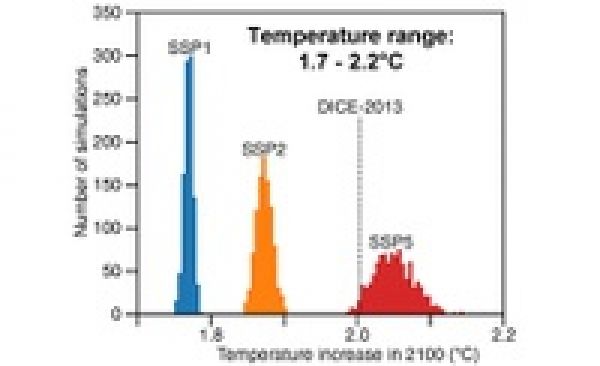Climate costs are likely smallest if global warming is limited to 2 degrees Celsius. Using computer simulations of a model by US Nobel Laureate William Nordhaus, they weight climate damages from, for instance, increasing weather extremes or decreasing labour productivity against the costs of cutting greenhouse gas emission by phasing out coal and oil. Interestingly, the economically most cost-efficient level of global warming turns out to be the one more than 190 nations signed as the Paris Climate Agreement. So far however, CO2 reductions promised by nations worldwide are insufficient to reach this goal.
“To secure economic welfare for all people in these times of global warming, we need to balance the costs of climate change damages and those of climate change mitigation. Now our team found what we should aim for,” says Anders Levermann from the Potsdam Institute for Climate Impact Research (PIK) and Columbia University’s LDEO, New York, head of the team conducting the study. “We did a lot of thorough testing with our computers. And we have been amazed to find that limiting the global temperature increase to 2°C, as agreed in the science-based but highly political process leading towards the 2015 Paris Agreement, indeed emerges as economically optimal.”
Continue reading at Potsdam Institute for Climate Impact Research
Image via Potsdam Institute for Climate Impact Research


